The Surge: A Military History is a military history by Kimberly Kagan about the Iraq War troop surge of 2007. The book describes events in Iraq starting from late 2006, before the surge, to early 2008, focusing on the details of military operations on a week by week basis. It was described as "indispensable guide" to the understanding of American military successes in Iraq by Senator John McCain. [1]
The book focuses on "operational art" rather than grand strategy or the personal emotional experiences of combat. [2] The book devotes separate chapters to operations in different areas, proceeding in an approximately chronological fashion, giving attention to operations conducted at the brigade and battalion level, as well as decisions undertaken at higher levels such as those by General Odierno in Operation Phantom Thunder. [3]
Although the book was marred by stylistic and grammatical errors, it was considered by reviewers to be "essential reading" [3] and a "valuable resource" for military professionals, although one reviewer warned that it was not for the casual reader. [2] It was criticized for not giving attention to the role of new technologies in tracking operations as they unfolded. [2]

John Sidney McCain III was an American politician and United States Navy officer who served as a United States senator from Arizona from 1987 until his death in 2018. He previously served two terms in the United States House of Representatives and was the Republican nominee for president of the United States in the 2008 election, which he lost to Barack Obama.
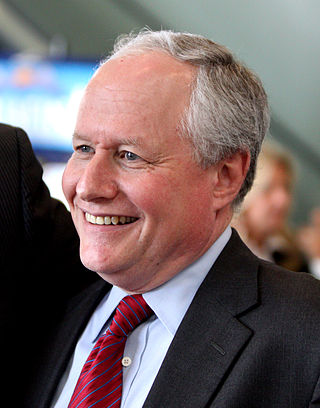
William Kristol is an American neoconservative writer. A frequent commentator on several networks including CNN, he was the founder and editor-at-large of the political magazine The Weekly Standard. Kristol is now editor-at-large of the center-right publication The Bulwark.
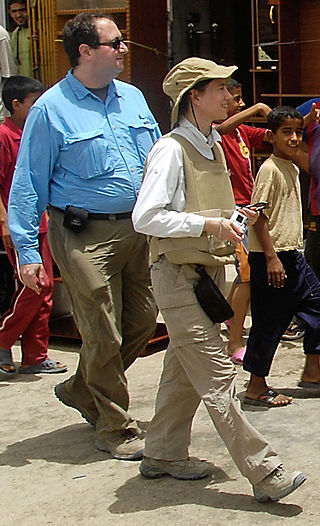
Frederick W. Kagan is an American resident scholar at the American Enterprise Institute (AEI) and a former professor of military history at the U.S. Military Academy at West Point.

Robert Kagan is an American neoconservative scholar. He is a critic of U.S. foreign policy and a leading advocate of liberal interventionism.
Matthew Scully is an American author, journalist, and political writer who has also written on animal welfare.

The Iraq Study Group (ISG) also known as the Baker-Hamilton Commission was a ten-person bipartisan panel appointed on March 15, 2006, by the United States Congress, that was charged with assessing the situation in Iraq and the US-led Iraq War and making policy recommendations. The panel was led by former Secretary of State James Baker and former Democratic congressman from Indiana, Lee H. Hamilton and was first proposed by Virginia Republican Representative Frank Wolf.

The Iraq Study Group Report: The Way Forward – A New Approach is the report of the Iraq Study Group, as mandated by the United States Congress. It is an assessment of the state of the war in Iraq as of December 6, 2006, when the ISG released the report to the public on the Internet and as a published book. The report was seen as crucial by Bush, who declared: "And truth of the matter is, a lot of reports in Washington are never read by anybody. To show you how important this one is, I read it, and [Tony Blair] read it."
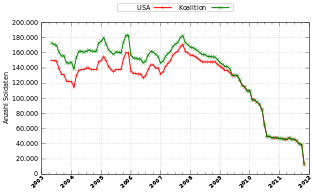
The Iraq War troop surge of 2007, commonly known as the troop surge, or simply the surge, refers to the George W. Bush administration's 2007 increase in the number of U.S. military combat troops in Iraq in order to provide security to Baghdad and Al Anbar Governorate.

The 2008 presidential campaign of John McCain, the longtime senior U.S. Senator from Arizona, was launched with an informal announcement on February 28, 2007, during a live taping of the Late Show with David Letterman, and formally launched at an event on April 25, 2007. His second candidacy for the Presidency of the United States, he had previously run for his party's nomination in the 2000 primaries and was considered as a potential running mate for his party's nominee, then-Governor George W. Bush of Texas. After winning a majority of delegates in the Republican primaries of 2008, on August 29, leading up to the convention, McCain selected Governor Sarah Palin of Alaska as his running mate for Vice President. Five days later, at the 2008 Republican National Convention, McCain was formally selected as the Republican Party presidential nominee in the 2008 presidential election.
Here are some of Senator John Edwards's votes and remarks on various issues.

VoteVets.org is a progressive political action committee (PAC) and 501(c)(4) nonprofit organization in the United States.
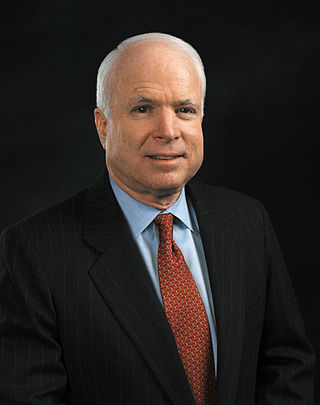
John McCain ran for U.S. president in the 2000 presidential election, but failed to gain the Republican Party nomination, losing to George W. Bush in a campaign that included a bitter battle during the South Carolina primary. He resumed his role representing Arizona in the U.S. Senate in 2001, and Bush won the election. Bush was President of the United States from 2001 to 2009. McCain won re-election to the Senate in 2004, 2010 and 2016.
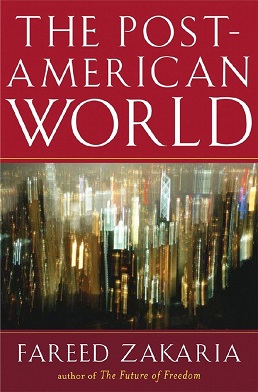
The Post-American World is a non-fiction book by American journalist Fareed Zakaria. It was published in hardcover and audiobook formats in early May 2008 and became available in paperback in early May 2009; the Updated and Expanded Release 2.0 followed in 2011. In the book, Zakaria argues that, thanks to the actions of the United States in spreading liberal democracy across the world, other countries are now competing with the US in terms of economic, industrial, and cultural power. While the US continues to dominate in terms of political-military power, other countries such as China and India are becoming global players in many fields.
Timeline of the Iraq War troop surge of 2007

The War Within: A Secret White House History (2006–2008) is a non-fiction book by Washington Post reporter Bob Woodward that was released by publisher Simon & Schuster on September 8, 2008. It is the fifteenth book written by Woodward, the fourth in a series of books about President George W. Bush and his administration's foreign policy including Bush at War, Plan of Attack, and State of Denial. The book discusses the debate within the administration about the controversial Iraq "surge" strategy implemented in 2007. Simon & Schuster editor Alice Mayhew said in an official statement that "There has not been such an authoritative and intimate account of presidential decision making since the Nixon tapes and the Pentagon Papers. This is the declassification of what went on in secret, behind the scenes."
The Foreign Policy Initiative (FPI) was an American think tank that operated from 2009 to 2017.

Kimberly Ellen Kagan is an American military historian. She founded and heads the Institute for the Study of War and has taught at West Point, Yale, Georgetown University, and American University. Kagan has published in The Wall Street Journal, The New York Times, The Weekly Standard and elsewhere. In 2009, she served on Afghanistan commander Gen. Stanley McChrystal's strategic assessment team.

The Institute for the Study of War (ISW) is an American nonprofit research group and think tank founded in 2007 by military historian Kimberly Kagan and headquartered in Washington, D.C. ISW provides research and analysis regarding issues of defense and foreign affairs. It has produced reports on the Syrian civil war, the War in Afghanistan, and the Iraq War, "focusing on military operations, enemy threats, and political trends in diverse conflict zones". ISW currently publishes daily reports on the 2022 Russian invasion of Ukraine as well as the Mahsa Amini protests in Iran.

Azhar al-Dulaymi was the mastermind of the January 20 attack in Karbala where fighters speaking English, wearing US military uniforms and carrying American weapons attacked a joint military command headquarters, leaving five US soldiers dead. Al-Dulaimi was believed to be a member of the Khazali Network, a Mahdi Army faction. He was tracked down and killed by U.S. forces on May 19, 2007 in Sadr City. The U.S. military had received intelligence reports that al-Dulaimi received training and funding from the Iranian Revolutionary Guard Corps and the Hezbollah.

Peter R. Mansoor is a retired United States Army officer, military historian, and commentator on national security affairs in the media. He is known primarily as the executive officer to General David Petraeus during the Iraq War, particularly the Iraq War troop surge of 2007. He is a professor at the Ohio State University, where he holds the General Raymond E. Mason Jr. Chair of Military History.














